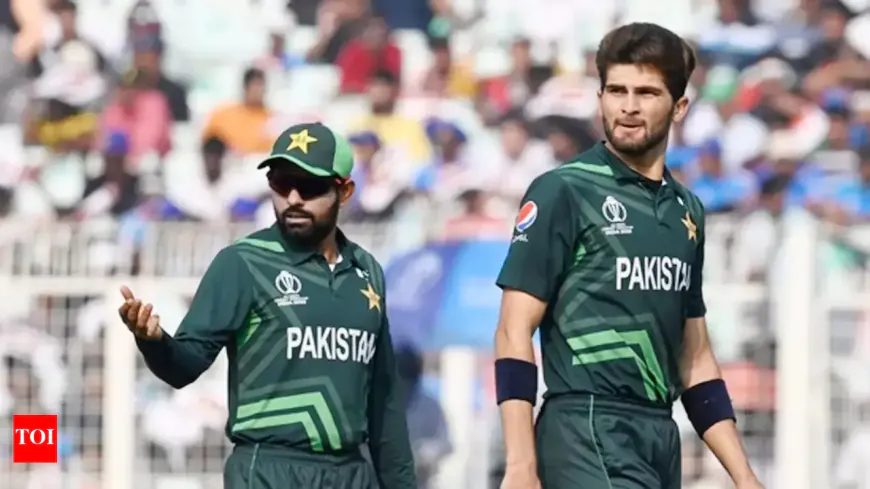Instagram Suspends Pakistani Cricketers' and Indian Influencers' Accounts
Instagram has limited access to the accounts of prominent Pakistani cricketers such as Babar Azam and Shahid Afridi in India on grounds of national security. Indian influencers have also been suspended and hacked over the past few months.

India took the aggressive path on May 2, 2025, by suspending the Instagram accounts of some leading Pakistani cricketers, including national team skipper Babar Azam, Mohammad Rizwan, and Wasim Akram, and a couple more. The action is on top of India's broader crackdown on the web following the April 22 terror attack that was carried out in Pahalgam, located in the southern part of Kashmir. On April 22, the bombing killed 26 people, most of whom were tourists, and hurt many others.
Along with Azhar, the accounts of all these cricketers had been blocked in part of the ban, such as Test captain Shan Masood, pace bowlers Hasan Ali and Naseem Shah, and batsman Imam-ul-Haq. These were added to by all-rounder Shadab Khan, former cricketers Shoaib Akhtar, and Shahid Afridi. Former cricket captain and former Prime Minister of Pakistan Imran Khan, also had his Instagram handle blocked.
When Indian users attempt to open these accounts, they are greeted by a notification informing them that the account cannot be accessed from the country. Instagram has now verified that blocks were put because of a lawful request, arguing that access had been blocked as the content violated laws in that locality. According to the company, after subjecting the content to its own policies, accounts were blocked within specific areas in which they violated norms of legality.
Interestingly, social media influencer popular Pakistani cricketers like Waqar Younis, the ex-World Cup-winning captain, and ex-captain Misbah-ul-Haq have not been suspended on Instagram accounts, at least yet.
The crackdown happened recently after the Pahalgam terror attack, increasing India-Pakistan tensions. Ever since the attack, India has increased censorship efforts for online posts by Pakistani celebrities on grounds of national security. In addition to blocking the Instagram accounts, India also blocked access to certain Pakistani YouTube channels. Channels operated by popular personalities such as Shoaib Akhtar, Basit Ali, and Shahid Afridi have been faulted for publishing inflammatory content that has the potential to harm the bilateral relationship between the two nations. The Indian government has accused such channels of disseminating misinformation, misinformation, and content that can cause violence or communal disturbances.
Freezing the channels and accounts is an indication of the ongoing cyber and diplomatic tensions between Pakistan and India. Social media platforms have become battlegrounds for influence and narrative war, and both governments are moving to secure their national security and interest. It is one part of a larger drive in India to limit the extent of Pakistani public figures and media stars in the country, especially those celebrity personalities who have sizeable followings on social media platforms like YouTube and Instagram.
Additionally, Pakistan's Olympic gold medalist javelin thrower Arshad Nadeem was also not spared when his Instagram account was recently blocked a few days ago. This increasing trend of account blocking suggests that the virtual world is proving to be an extension of the current political and diplomatic enmity between the two nations.
Although account blocking in the social media sphere is considered to be a measure for national security issues, its implications reach the broader sphere concerning freedom of expression and free information exchange. Social media platforms like YouTube and Instagram are influential in public opinion and world discourse. However, once politics or issues of national security are involved, such websites find themselves torn between enforcing local law and protecting users' rights.
With governments holding the internet's space, individuals of both countries have fewer spaces through which they can access other opinions. The impact of such blocks extends beyond the domain of celebrities and sporting heroes. It goes equally for common users who might wish to listen from beyond the border what the users have to say. It also tells much about digital diplomacy and social media's place in modern geopolitics.
While suspending accounts and restricting content may offer relief to the Indian government in the short term, it also reveals much about the fine line that exists between freedom of expression and security in today's digital era. Only time will tell for how long long these restrictions last and whether or not tensions are heightened or decreased as both countries grapple with the risks of the digital age.



 admin
admin